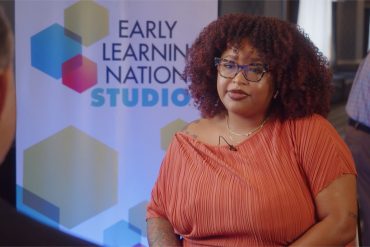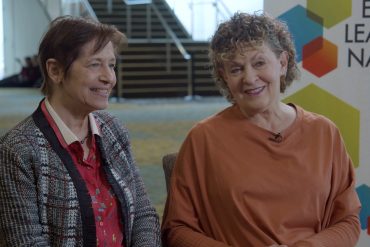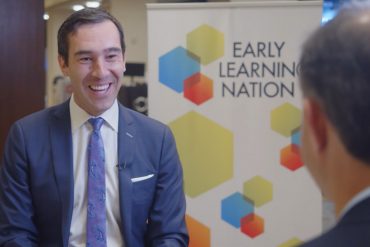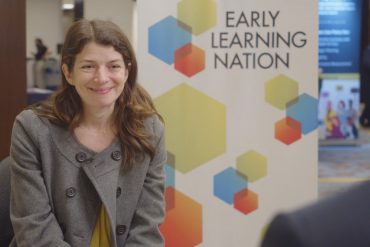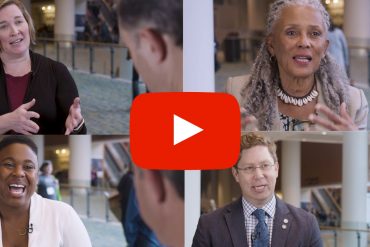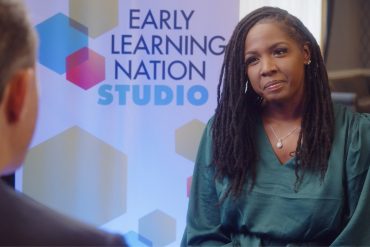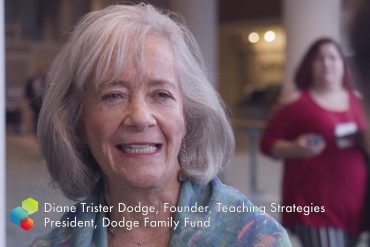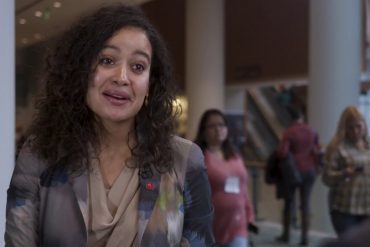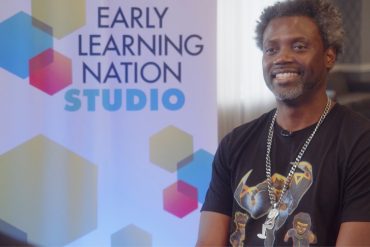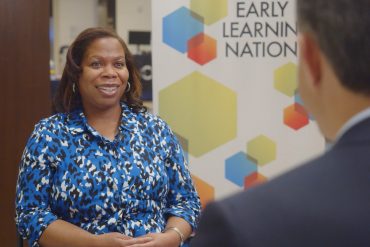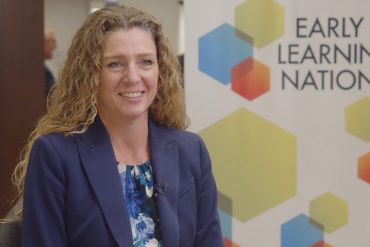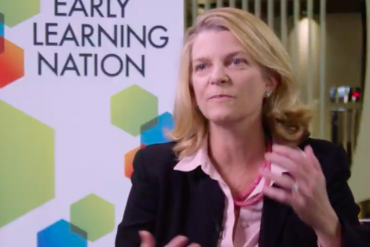As part of their effort to target early childhood from ages zero to eight, BDCI-Colorado President Jalen Taylor is working to expand their reach across the Rocky Mountain state – with a special focus on mental health and wellness.
The pressure to over-program kids often seems endless – so much so that a simple, old-fashioned idea has fallen to the side: Children should play. Roberta Michnick Golinkoff & Kathy Hirsh-Pasek – researchers and co-authors of “Becoming Brilliant, What Science Tells Us About Raising Successful Children” – explain their “Learning Landscapes” program, where they help local municipalities turn public spaces like bus stops into child-friendly play zones.
Like many urban centers, Baltimore has seen its share of violence. And incarceration. That’s just one reason why City Councilmember Zeke Cohen feels that the way to help people build strong lives begins not when they’re adults, but as children. As Cohen says, “We either invest early on where we know every dollar we spend in the high quality early learning space pays huge dividends down the road or we pay for it on the back end.”
As a Reporting Fellow at New America’s Better Life Lab, Rebecca Gale has covered many aspects of America’s approach to child care. And one thing she knows: it’s complicated. From economics to use cases to the delivery system to funding and beyond, the U.S. has no one-size-fits-all approach. That patchwork leaves too many gaps, and that’s just one reason Gale argues that one way to improve America’s child care system is to improve how journalists report about it.
In 2019, we packed up the cameras and sound equipment for the Early Learning Nation Studio and went to Baltimore...
As Senior National Education Administrator for T-Mobile for Education, Dr. Kiesha King helps oversee T-Mobile’s Project 10Million, a $10.7 billion effort to bridge the digital divide by providing access to devices to “ensure internet access is not a barrier to a child's education.”
When Diane Trister Dodge began working with Head Start, she created her own learning materials with mimeographs and homemade filmstrips. That creative focus on training teachers helped Diane become founder of Teaching Strategies and now President of the Dodge Family Fund, promoting the early childhood profession and programs that help children in poverty to be successful.
As Manica F. Ramos, Senior Research Scientist at Child Trends notes, we often forget that parents are the first and primary teacher for their child – from the moment they’re born, through their school experiences, and until the end of the day. Which is why helping parents learn how to teach in every day moments is such an important piece of a child’s early learning experience.
Hotep is an artist and educator, but most importantly, he’s a father to two young “cubs.” Hotep has created a family friendly anime series, centered around a father and his two children, representing characters that look like them and instilling some of the important qualities for positive human development: Confidence, self-esteem and belief in oneself.
As American cities rebuild after the pandemic, much of the focus is on infrastructure. For Dr. Tonja Rucker, Director of Early Childhood Success at NLC’s Institute for Youth, Education and Families, that means not only physical needs like roads and bridges, but also the family structure, starting with its youngest members. As Dr. Rucker notes: “If the youngest residents are healthy and doing well, then the rest of things kind of fall into place and families get to be able to meet their needs.”
For a community looking to address various social challenges, Vallejo, CA is starting with early childhood learning. As City Councilmember Pippin Dew says, programs such as the new First 5 Center not only help set children for future education success, but also helps families be the most productive they can be.
Building successful early learning programs is hard. Figuring out how to do it in some of the hardest to reach corners of the globe? That’s a case for Cynthia McCaffrey, director of UNICEF’s Office of Innovation.


